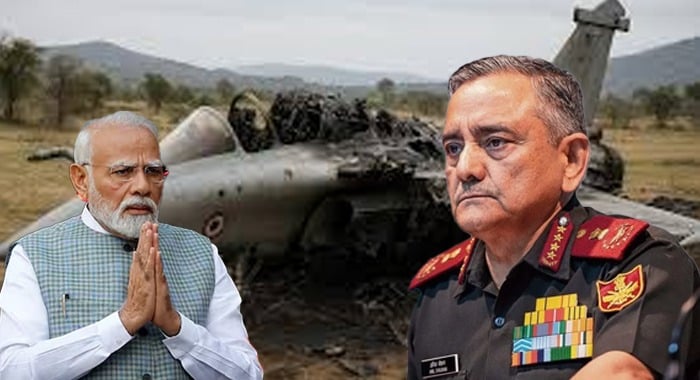A serious political and military storm is brewing in India after former Indian Army officer and prominent defence analyst Pravin Sawhney publicly called for the resignation of Chief of Defence Staff (CDS) General Anil Chauhan and the appointment of new top military leadership, alongside a change in political direction under the Modi government.
Sawhney’s remarks come in response to General Chauhan’s startling admission that Indian Air Force (IAF) fighter jets remained grounded for two days during recent hostilities, a disclosure that has raised sharp questions about India’s military preparedness and strategic leadership.
“General Chauhan’s admission alone is reason enough for him to resign,” Sawhney said. “After confirming the loss of IAF aircraft and conceding air superiority to Pakistan, the Modi government must immediately appoint a new Chief of Defence Staff and a new Air Chief.”
Air Superiority and Strategic Failure
Sawhney, known for his critical views on India’s military doctrine, argued that Pakistan established air superiority at the outset of the conflict, a factor he claims decided the outcome of the engagement from the beginning.
He strongly criticised General Chauhan’s grasp of modern warfare, saying:
“He lacks the understanding required for today’s multidimensional battle-space. Admitting that fighter jets were grounded for 48 hours is not just an operational failure, it’s a strategic collapse.”
Modi Government Under Fire
The sharpest criticism, however, was reserved for Prime Minister Narendra Modi’s administration. Sawhney accused the Modi-led government of presiding over the decline of the Indian Air Force since taking office, and failing to adapt to the demands of modern conflict.
“Since Modi came to power, the IAF has been on a downward trajectory,” he said. “India needs a government that understands the complexities of 21st-century warfare — not one that makes hollow claims about the success of Operation Sindoor after such damaging revelations.”
The term “Operation Sindoor” was used by Indian officials to describe the recent military campaign, which the government continues to portray as a strategic success — a claim now under intense scrutiny both domestically and abroad.
Growing Pressure for Accountability
Sawhney’s statement adds to a growing wave of criticism against India’s civil-military leadership, with analysts suggesting the credibility of India’s defence establishment is at stake. His call for structural and political change comes amid broader questions over transparency, accountability, and the militarization of political narratives.
With tensions still high in the region, observers say New Delhi is under pressure not just to repair its strategic posture, but to restore public and institutional trust, starting at the very top.





